This workshop will provide an overview of the DNA Synthesis Program and its platform capabilities and Metabolomics Program capabilities at the JGI with a view toward enabling new users to tap into the JGI via the Community Science Program mechanism. The DNA synthesis portion of the session will include presentations explaining the program, capabilities, current research, scientific vision, and future technological advances. The metabolomics portion will provide an overview of JGI capabilities, an introduction to metabolomic technologies, relevant data analysis, and key experimental considerations. We aim for this to be an informative and highly interactive session allowing users to share their experience working with the JGI and audience to learn how DNA synthesis and metabolomics capabilities complement their genomics research.
Download PDF Agenda SynBio Metabolomics Workshop
Agenda
| Time | Speaker | Title |
| 1:00 PM – 1:30 PM | Yasuo Yoshikuni, LBNL | Overview of JGI Synthetic Biology capabilities for JGI CSPs and tips for designing CSPs/FICUS proposals using SynBio. |
| 1:30 PM – 1:50 PM | Sam Deutsch, LBNL | Technical capabilities, approaches, and future directions for the SynBio Program. |
| 1:50 PM – 2:20 PM | Trent Northen, LBNL | Overview of JGI metabolomics capabilities for JGI CSPs and Experimental considerations for designing CSPs/FICUS proposals that include metabolomics. |
| 2:20 PM – 2:40 PM | Ben Bowen, LBNL | Introduction to metabolomics data processing, standard output and effective data utilization. |
| 2:40 PM – 2:50 PM | Break | |
| 2:50 PM – 3:05 PM | Philippe Zerbe, UC Davis | Investigating the Metabolic Diversity of Plant Terpenoids Toward Biotechnology Applications. |
| 3:05 PM – 3:20 PM | Michi Taga, UC Berkeley | Uncovering hidden interactions between microbes. |
| 3:20 PM – 3:35 PM | Brian Hedlund, UNLV | Cultivation, physiology, genomic, and exometabolomic study of previously uncultivated Chloroflexi class TK10 (TK17), a global inhabitant of geothermal springs and other environments. |
| 3:35 PM – 3:50 PM | Ming Hammond, UC Berkeley | Riboswitching on the light—Illuminating the single-cell biology of chemical signals. |
| 3:50 PM – 4:00 PM | Closing discussion. | |
Yasuo Yoshikuni, LBNL
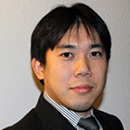
Yasuo Yoshikuni
Yasuo Yoshikuni is the DNA Synthesis Science Program Head and a Staff Scientist, Lawrence Berkeley National Laboratory. Dr. Yoshikuni has a B.E. in Biological Science and Technology, Tokyo University of Science, Japan (summa cum laude), a Ph.D. in Bioengineering, University of California, Berkeley, CA (with Jay Keasling) and has additional Postdoctoral training in Biochemistry, University of Washington, WA (HHMI and Jane Coffin Childs Memorial Fellow). Prior to joining at the DOE JGI, Yasuo was a co-founder and Chief Science Officer at a clean technology start-up, Bio Architecture Lab, Inc. (BAL) where his significant achievement was using synthetic biology to develop the first microbial platform technologies enabling to unlock the potential of macroalgae as highly environmentally sustainable and cost-effective biomass for the production of renewable fuels and chemicals. The development of this technology allowed the company to raise $40 million from private funding sources, receive prestigious national grants and build a commercial partnership with leading companies in the oil and chemical industries. The work also led to several high impact scientific publications. Yasuo’s research focus is to discover novel secondary metabolites and to study their roles in microbial-microbial and plant-microbial communications in various environments. He is currently developing design principles, tools, and methodologies to mine and characterize novel secondary metabolite biosynthetic pathways and component enzymes by leveraging on the DOE JGI’s unique resources and capabilities.
Sam Deutsch, LBNL
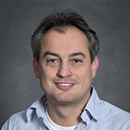
Sam Deutsch
Dr. Deutsch joined the JGI in 2008, and currently leads the DNA Synthesis Science group. He obtained his B.Sc. in Genetics, University of Nottingham, U and Ph.D in Genetics and Genomics, University of Geneva, Switzerland, where he studied the genetics and genomics of human chromosome 21, and developed new models of dosage imbalance and its association to human disease. In 2010 Dr. Deutsch formed the DNA Synthesis Science group at JGI, which started operating as a user program in 2011 with the goal of providing access to the rapidly evolving Synthetic Biology toolkit to the broader community. The main goal of the group is to enable users to study the function of genes and pathways that are difficult to source from sequence databases, including uncultured microbes and higher plants in order to accelerate the development of applications relevant to DOE mission science.
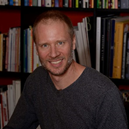
Trent Northen, Ph.D.
Trent Northen, LBNL
Trent Northen is the JGI metabolomics platform leader and senior scientist within the Environmental Genomics and Systems Biology Division (EGSB) at Lawrence Berkeley National Laboratory (Berkeley Lab). The Northen group’s research is focused on using exometabolomics to link genomes with environments to understand how webs of microbes cycle carbon and sustain biomes. Central to these efforts are the development of advanced mass spectrometry approaches and model laboratory ecosystems (EcoFABs) that are closely coupled to native ecosystems. Dr. Northen obtained his BS in Chemical Engineering at the University of California Santa Barbara. Dr. Northen was a NSF Integrative Graduate Education and Research Traineeship (IGERT) fellow at the Biodesign Institute (Arizona State University), where he received his PhD in Chemistry and Biochemistry under Neal Woodbury and was a Post-Doctoral Fellow at the Scripps Research Institute under Gary Siuzdak. He has received numerous awards including a 2014 DOE Early Career Award, a 2013 R&D100 award, and was awarded a Presidential Award for Science and Engineering (PECASE) by President Obama in 2010. His research has resulted in over 20 patent applications and over 90 publications including numerous papers in influential, peer-reviewed journals, such as Nature, Nature Communications, Nature Plant, Nature Genetics, PNAS, Energy and Environmental Sciences, Journal of Biochemistry, and Analytical Chemistry. Dr. Northen currently serves on a number of Scientific Advisory Boards and has diverse leadership responsibilities including being Director of Biotechnology for the DOE Ecosystems and Networks Integrated with Genes and Molecular Assemblies (ENIGMA) Scientific Focus Area Program, Director of High Throughput Biochemistry at JBEI, and Metabolomics Platform Lead at JGI.
Ben Bowen, LBNL
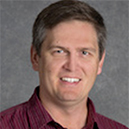
Ben Bowen
Dr. Bowen is cheminformatics lead within the metabolomics platform at JGI. He is also a research scientist In the Environmental Genomics and Systems Biology (EGSB) Division of Berkeley Lab. He obtained his BS in Chemical Engineer at the University of Arkansas and his PhD from Arizona State University. Overall, Dr. Bowen has over 10 years experience in mass spectrometry and quantitative analysis. His work has establish new paradigms in proteomics, metabolomics, and imaging.
Philipp Zerbe, UC Davis

Philipp Zerbe
Philipp Zerbe is an Assistant Professor at the Department of Plant Biology, University of California at Davis. His research focuses on the discovery and engineering of specialized terpenoid metabolism in medicinal, food and bioenergy plants for developing tools for the production of terpenoid bioproducts with human benefit. In recognition of his work, Dr. Zerbe received the 2015 Arthur C. Neish Young Investigator Award and a 2016/17 Hellman Fellowship. Prior to his position at UC Davis, Dr. Zerbe received his PhD from the Ruhr-University Bochum, Germany (2007) with emphasis on structural-functional studies in jasmonate phytohormone biosynthesis, followed by positions as a Postdoctoral Fellow and Research Associate at the University of British Columbia (Vancouver, Canada) where he focused his research on the discovery of terpenoie metabolic pathways with relevance for bioproducts and stress tolerance in food crops and forest trees.
Michi Taga, UC Berkeley
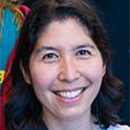
Michi Taga
Dr. Michi Taga earned her bachelor’s degree in Biology from Carleton College and her PhD in Molecular Biology from Princeton University. At Princeton, she developed a love for microbiology while investigating the mechanisms of bacterial quorum sensing with advisor Bonnie Bassler. She then transitioned to a postdoc with Graham Walker at MIT to study bacteria-host interactions, using the Rhizobium-legume symbiosis as a model. Her postdoctoral research led to the discovery and characterization of the last missing step in the biosynthesis of vitamin B12. She joined the Department of Plant & Microbial Biology at the University of California, Berkeley, as an Assistant Professor in 2009, and is currently a tenured Associate Professor. Her laboratory investigates the mechanisms of nutrient cross-feeding among bacteria, using vitamin B12-like metabolites (corrinoids) as model nutrients. She was named a Winkler Fellow in 2010, a Hellman Fellow in 2012, and an NIH New Innovator in 2014. Her research is currently supported by NIH.
Brian Hedlund, UNLV
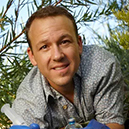
Brian Hedlund
Prof. Brian Hedlund holds a bachelor’s degree in biology from the University of Illinois, a doctorate in microbiology from the University of Washington, and was a postdoctoral fellow at the University of Regensburg, Germany. Hedlund was hired at UNLV in 2003 and is currently the Greg Fullmer Endowed Professor of Life Sciences. Hedlund has published over 60 peer-reviewed scientific publications and has been a principal investigator on more than $6 million in extramural grants from the National Aeronautics and Space Administration, Department of Energy, National Institutes of Health, and National Science Foundation, including a CAREER award and a large international project funded through the Partnerships for International Science and Education (PIRE) program. Hedlund’s research focuses on the microbiology and biogeochemistry of geothermal ecosystems, the genomic exploration of “microbial dark matter”, and the role of the intestinal microbiome in prevention of Clostridium difficile infection. Dr. Hedlund is editor for Antonie van Leeuwenhoek journal, a member of Bergey’s Manual Trust, and editor for Bergey’s Manual of Systematics of Archaea and Bacteria, the authoritative reference manual for microbial taxonomy. Dr. Hedlund regularly serves on grant panel review boards both domestically and internationally and has taught more than 2,500 students at UNLV. As a Research Division Faculty Fellow in the Office of the Vice President for Research and Economic Development.
Ming Chen Hammond, UC Berkeley

Ming Chen
Ming Chen Hammond, Assistant Professor, Departments of Chemistry and Molecular & Cell Biology University of California, Berkeley. Professor Hammond is also the Principal Investigator for the Hammond Lab at UC Berkeley. The Hammond lab has a dual focus on engineering nucleic acids as programmable tools for molecular imaging and gene control, and on understanding the chemistry and biology of cyclic dinucleotides as signaling molecules in bacteria and mammalian cells.